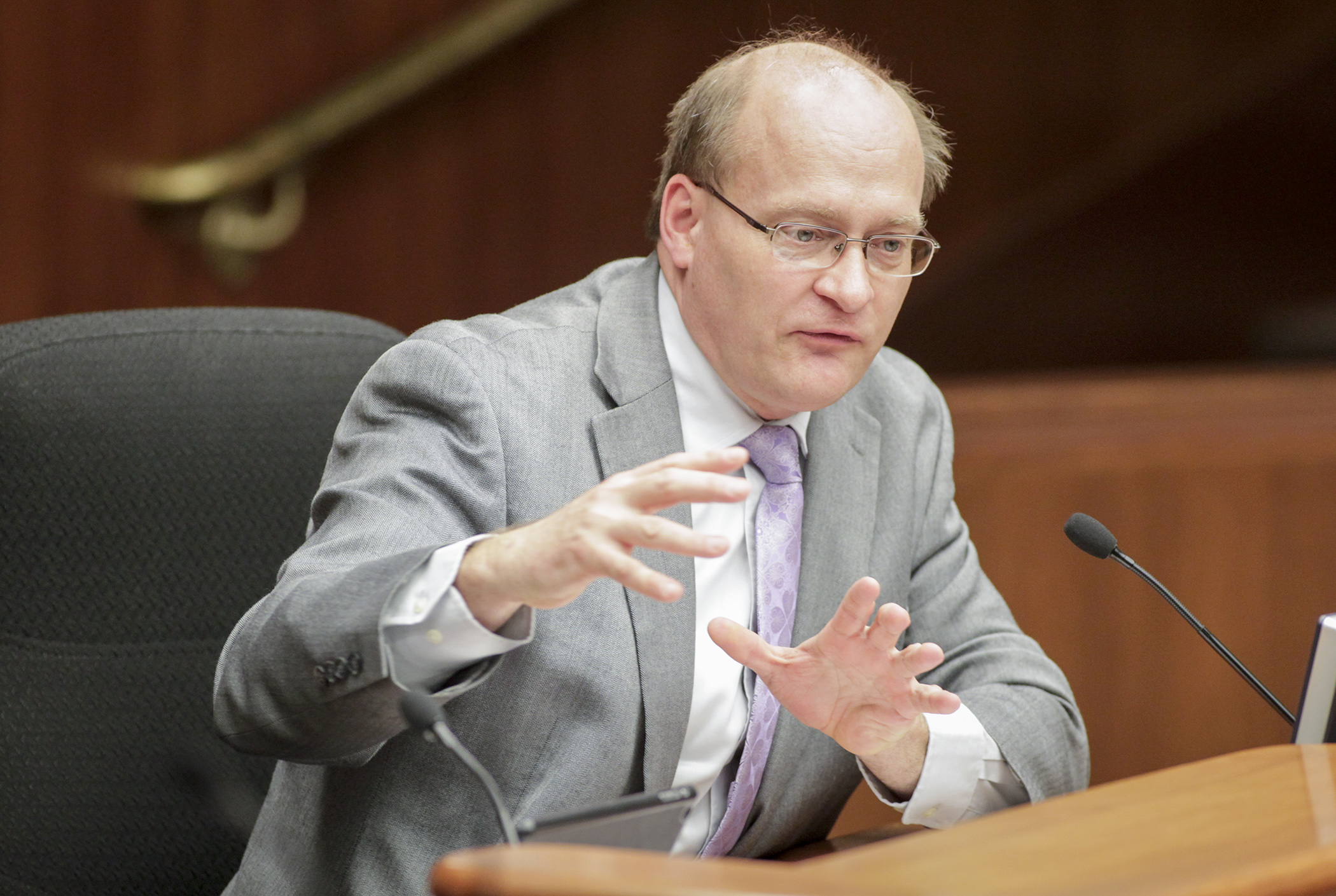Minnesota’s smallest cities seek state partner for road funding

The cost of maintaining local roads is an increasingly difficult burden to bear for many of Minnesota’s smallest cities. A bill held over Thursday by the House Transportation Finance Committee for possible inclusion in an omnibus bill could throw those communities a lifeline.
Minnesota cities of under 5,000 residents aren’t eligible for state highway aid for their local roads, though a 2015 transportation bill funneled some funding toward through the Small Cities Assistance Program.
“Small cities could use a partner,” said Tony Chladek, the city administrator for Rushford, a southeastern Minnesota town of around 1,700. “Now, we tackle road maintenance on our own.”
HF1550, sponsored by Rep. Jeff Backer (R-Browns Valley) would allocate General Fund revenues for city road aid through a new funding formula for the Small Cities Assistance Program, as well as a new program that would be established for cities that do receive municipal state-aid street funds.
“We have [small] town streets, city streets in need of repair,” Backer said. It’s the state’s responsibility, he added, “to help our partners.”
A companion bill, SF 1358 sponsored by Sen. Justin Eichorn (R-Grand Rapids), awaits action in the Senate Transportation Finance and Policy Committee.
The General Fund dollars would come from a combination of sources:
- annual interest and investment earnings, allocated to reflect the forecast General Fund balance at the end of the fiscal year;
- a portion of revenue from the motor vehicle lease sales tax; and,
- revenue from a tax imposed on short-term rentals and leases.
Some lawmakers expressed concern the bill would simply take funding from other parts of the state in need of transportation dollars in order to give it to another.
But officials from small cities who testified Wednesday said the state dollars are sorely needed. The increasing age of local roads in many small communities — and the rising price to fix them — leaves many of Greater Minnesota’s communities struggling to keep their city streets in good repair.
“We see the cost of maintaining our streets as the single greatest threat” to Grand Rapids’ continued viability, said Rick Blake, a Grand Rapids City Council member.
Related Articles
Search Session Daily
Advanced Search OptionsPriority Dailies
Legislative leaders set 2026 committee deadlines
By Lisa Kaczke Legislative leaders on Tuesday officially set the timeline for getting bills through the committee process during the upcoming 2026 session.
Here are the three deadlines for...
Legislative leaders on Tuesday officially set the timeline for getting bills through the committee process during the upcoming 2026 session.
Here are the three deadlines for...